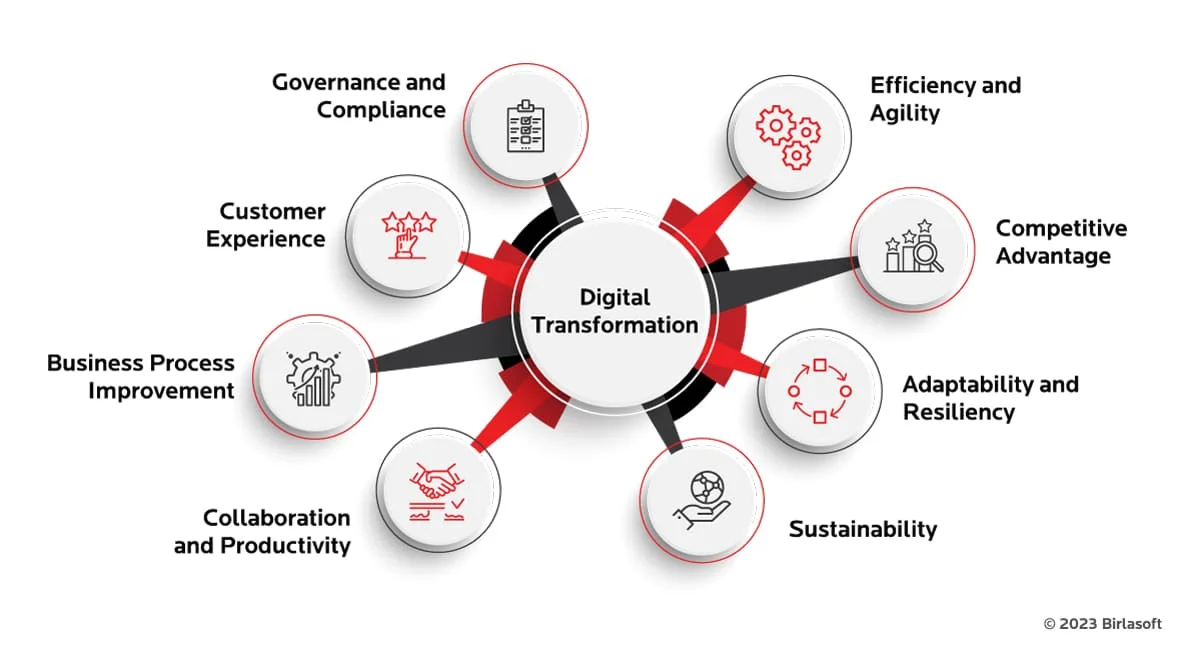Digital Transformation powered by Automation
As organizations move on to the later stages of their Digital Transformation journey, there is an increased focus on autonomy, agility, and efficiency. Automation emerges as a key tool from the DX toolbox for organizations to leverage and meet their transformation objectives quickly, reliably, and efficiently.
As organizations embark on the digital journey, automation takes a front seat in the overall adoption and is pivotal in achieving the associated objectives.
Efficiency and Agility
Swift and dynamic scaling is a pre-requisite for Digital Transformation, and enterprises can achieve this through automation. Automation speeds up processes, mitigates errors, reduces manual intervention, and integrates systems and databases, leading to operational efficiency. Data-driven automation can help analyze data from disparate sources and provide valuable insights to drive profitable decision-making. Automation can eliminate silos helping the business achieve more agility in shifting to new processes, systems, and technologies.
Competitive Advantage
Evolving from a siloed view of automation, organizations must instead focus on automation as a strategic priority across functions and as a lever for transformation rather than a confined technology process for cost optimization. A unified and collaborative view of automation across the business can help create a significant competitive advantage by leveraging efficiency, accuracy, adaptability, and speed. For instance, automation can help with economies of scale and accelerate delivery, helping organizations build a competitive advantage.
Enriched Customer Experiences
Customer experience is a top priority for Digital Transformation. With end-to-end workflow automation, businesses can monitor desired metrics in real-time and enhance customer experience with actionable insights on customer behaviors, patterns, and engagement history. For instance, personalized product recommendations can help in upselling and improving retention.
In the demand-driven market, customers expect immediate responses to their queries. Providing seamless, tailored experiences with chatbots and virtual assistants across channels can ensure that businesses deliver enhanced customer experience and build loyalty. As routine and time-consuming tasks get automated, employees have more opportunities to apply creativity and critical thinking for innovation, focus on customers, and get involved in tasks that require human intervention and add value.
Business Process Improvement
While process improvements are primarily driven by Digital Transformation, automation helps in speed and reliability. Streamlining processes with automation can make businesses more responsive and flexible. Optimization and quicker implementation of new processes can accelerate the transformation process within the deadlines.
Automation-driven speed, accuracy, and consistency can establish process quality and dependability. With performance tracking enabled by automation, organizations can rapidly identify bottlenecks and remedy otherwise costly situations. In specific industries like retail and e-commerce, automated warehouse and inventory management can ensure smooth operations while helping to identify issues well in advance.






